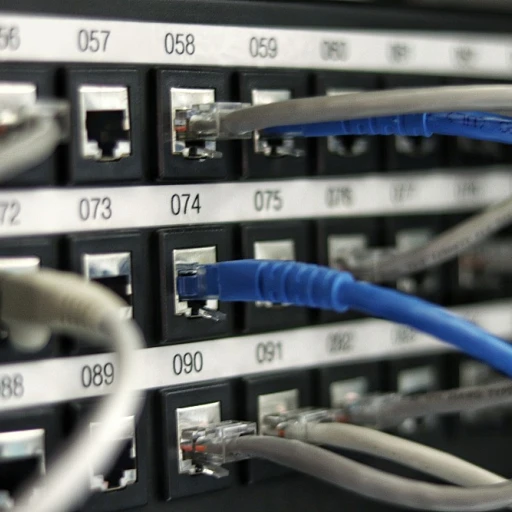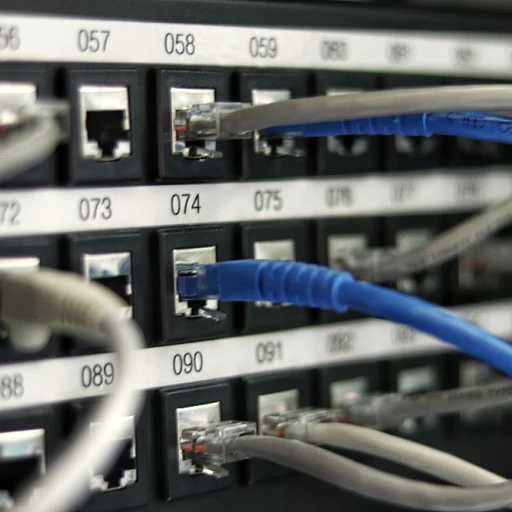
The Rise of AI in Indian Smart Homes
Embracing AI in Urban Living
The landscape of smart homes in India is rapidly evolving, driven by the integration of artificial intelligence (AI) into everyday living. As urban areas expand, the demand for intelligent systems that enhance convenience and efficiency is on the rise. AI-powered smart homes are not just a futuristic concept; they are becoming a reality, transforming how Indians interact with their living spaces.
Technology Meets Tradition
Incorporating AI into homes in India involves a blend of cutting-edge technology and traditional living practices. Smart devices, such as voice assistants like Alexa and Google, are becoming commonplace, allowing residents to control lighting, security systems, and appliances with simple voice commands. This seamless integration of technology into daily life is opening possibilities for more personalized and efficient home environments.
Market Dynamics and Growth
The Indian smart home market is experiencing significant growth, fueled by increasing urbanization and a tech-savvy population. Real estate developers are recognizing the potential of AI-powered smart homes, incorporating these technologies into new projects to meet the rising demand. As more consumers become aware of the benefits of smart living, the market is poised for further expansion.
Energy Efficiency and Security
One of the key drivers behind the adoption of AI in Indian homes is the promise of enhanced energy efficiency and security. Smart systems can optimize energy usage in real time, reducing costs and environmental impact. Additionally, advanced security systems provide peace of mind, offering features like real-time monitoring and alerts. These benefits are crucial in a country where energy conservation and safety are top priorities.
For more insights into how technology is shaping the future of living spaces, explore the potential of IoT software development and its impact on smart home innovations.
Key Technologies Driving Smart Home Innovations
Technological Foundations of Smart Homes
The evolution of smart homes in India is largely driven by a convergence of advanced technologies. At the core of these innovations are artificial intelligence and the Internet of Things (IoT), which together create a seamless and intelligent living environment. AI-powered systems are transforming traditional homes into smart homes by integrating various devices and systems, enabling them to communicate and function in harmony.
AI and IoT: The Backbone of Smart Living
AI plays a crucial role in managing and optimizing the functionalities of smart homes. From voice assistants like Alexa and Google to smart appliances, AI enhances user experience by providing real-time responses and personalized automation. IoT, on the other hand, connects these smart devices, allowing them to exchange data and perform tasks autonomously. This synergy between AI and IoT is opening possibilities for more efficient and convenient living.
Smart Devices and Systems
Smart devices are the building blocks of modern smart homes. These include smart lighting systems, security systems, and energy-efficient appliances that can be controlled remotely. The integration of these devices into a cohesive system is what makes a home truly smart. For instance, smart lighting can adjust based on the time of day or occupancy, enhancing both energy efficiency and comfort.
Security and Energy Efficiency
Security is a significant concern for homeowners, and smart security systems provide enhanced protection through real-time monitoring and alerts. These systems use AI to analyze data from cameras and sensors, offering a proactive approach to home security. Additionally, energy efficiency is a key benefit of smart homes. By optimizing the use of resources, smart homes contribute to a sustainable future, which is particularly important in urban areas where energy consumption is high.
To delve deeper into the technological advancements driving these innovations, you can explore more about unlocking the potential of IoT software development.
Benefits of AI-Driven Smart Homes
Enhancing Daily Living with AI
AI-powered smart homes in India are transforming the way people interact with their living spaces, offering a range of benefits that enhance daily life. These homes leverage advanced technology to create environments that are not only more convenient but also more efficient and secure.
Improved Energy Efficiency
One of the most significant advantages of AI-driven smart homes is their ability to optimize energy usage. Smart systems can adjust lighting and temperature based on real-time data, reducing energy consumption and lowering utility bills. This is particularly beneficial in urban areas where energy costs are high. By using AI to manage energy efficiency, homeowners can contribute to a more sustainable future.
Enhanced Security Systems
Security is a top priority for homeowners, and AI-powered security systems offer advanced protection. These systems use real-time monitoring and machine learning algorithms to detect unusual activities and alert homeowners instantly. With smart devices like cameras and sensors, residents can monitor their homes remotely, ensuring peace of mind whether they are at home or away.
Seamless Automation and Control
AI in smart homes allows for seamless automation of various tasks, making daily routines more manageable. Voice assistants like Alexa and Google Assistant enable users to control smart appliances and devices with simple voice commands. This level of automation not only enhances convenience but also opens possibilities for more personalized living experiences.
Personalized Living Experiences
AI technology enables smart homes to learn from user behaviors and preferences, offering personalized experiences tailored to individual needs. Whether it's adjusting the lighting based on the time of day or setting the perfect temperature for a cozy evening, AI ensures that homes adapt to the lifestyle of their inhabitants.
As the market for smart homes in India continues to grow, the integration of AI will play a crucial role in shaping the future of living spaces. For more insights into the technologies driving these innovations, explore the evolution of augmented reality devices and their impact on smart home technology.
Challenges and Considerations
Addressing Security Concerns
As AI-powered smart homes become more prevalent in India, security remains a top priority. The integration of smart devices and systems, such as security cameras and voice assistants, raises concerns about data privacy and unauthorized access. Ensuring robust security measures is essential to protect the personal information of residents and maintain trust in these technologies.
Energy Efficiency and Infrastructure Challenges
While AI-driven smart homes promise enhanced energy efficiency, the existing infrastructure in many urban areas may not support the seamless integration of these technologies. The challenge lies in upgrading the current systems to accommodate smart lighting, energy-efficient appliances, and real-time energy management solutions. This requires collaboration between technology providers, real estate developers, and government bodies to create a conducive environment for smart living.
Market Adoption and Consumer Awareness
The adoption of AI-powered smart homes in India is still in its nascent stages. Many consumers are unaware of the potential benefits and functionalities of smart products. Increasing consumer awareness through education and marketing initiatives is crucial for driving market growth. Additionally, addressing the cost factor and providing affordable solutions will play a significant role in expanding the reach of smart home technologies.
Interoperability and Compatibility Issues
Another challenge is ensuring interoperability among various smart devices and systems. With a plethora of products available in the market, compatibility issues can hinder the seamless functioning of smart homes. Developing standardized protocols and encouraging collaboration among manufacturers can help overcome these challenges, enabling a more cohesive smart home ecosystem.
Case Studies: Success Stories from India
Real-Life Applications in Urban Indian Homes
In the rapidly evolving landscape of smart homes in India, several real-life applications have emerged as success stories, showcasing the transformative potential of AI-powered technology. These examples highlight how smart devices and systems are reshaping urban living, enhancing energy efficiency, security, and overall convenience.
Energy Efficiency and Smart Lighting
One of the standout examples of AI-driven smart homes in India is the integration of smart lighting systems. These systems utilize real-time data and artificial intelligence to adjust lighting based on occupancy and natural light availability, significantly reducing energy consumption. Urban households in cities like Bangalore and Mumbai have reported noticeable reductions in electricity bills, demonstrating the economic and environmental benefits of these technologies.
Advanced Security Systems
Security remains a top priority for homeowners, and AI-powered security systems are making a significant impact. In cities with high real estate values, such as Delhi and Hyderabad, smart security systems equipped with facial recognition and real-time alerts are providing homeowners with peace of mind. These systems not only deter potential intruders but also offer remote monitoring capabilities, allowing homeowners to keep an eye on their property from anywhere in the world.
Voice Assistants and Smart Appliances
The integration of voice assistants like Alexa and Google Assistant in Indian smart homes has opened up new possibilities for automation and convenience. Homeowners are increasingly using these technologies to control smart appliances, manage daily tasks, and even entertain guests. The seamless interaction between voice assistants and smart devices is transforming the way people interact with their living spaces, making homes more intuitive and responsive to their needs.
Future Prospects in the Indian Market
As the market for smart homes in India continues to grow, these case studies serve as a testament to the potential of AI-powered technology in enhancing urban living. With ongoing advancements in smart devices and systems, the future of smart homes in India looks promising, offering even more innovative solutions to improve energy efficiency, security, and overall quality of life.
The Future of AI in Indian Smart Homes
Emerging Trends in AI-Driven Smart Homes
The future of AI-powered smart homes in India is poised for remarkable growth, driven by technological advancements and increasing consumer demand. As urbanization continues to rise, the integration of smart devices and systems in Indian homes is becoming more prevalent. These homes are not just about convenience; they are about creating a seamless living experience that enhances energy efficiency and security.
Integration of Advanced Security Systems
Security remains a top priority for homeowners. AI-powered security systems are evolving to provide real-time monitoring and alerts, ensuring the safety of residents. These systems use advanced algorithms to detect unusual activities, offering peace of mind to homeowners. The future will likely see more sophisticated security solutions that integrate with other smart home devices, creating a comprehensive safety net.
Energy Efficiency and Sustainable Living
Energy efficiency is another critical aspect driving the future of smart homes in India. AI technology is being used to optimize energy consumption, making homes more sustainable. Smart lighting and appliances that adjust based on usage patterns are becoming standard. This not only reduces energy bills but also contributes to environmental conservation.
Voice Assistants and Automation
Voice assistants like Alexa and Google Assistant are becoming integral to smart home systems. They offer hands-free control over various devices, enhancing the automation of daily tasks. As AI technology advances, these voice assistants will become more intuitive, understanding complex commands and providing personalized responses.
Market Expansion and Consumer Adoption
The Indian market for smart homes is expanding rapidly. With increasing awareness and affordability, more consumers are adopting smart home technologies. Real estate developers are also recognizing the value of integrating smart systems into new constructions, making them a standard feature in modern homes.
Conclusion
The future of AI-powered smart homes in India is bright, with endless possibilities for innovation and improvement. As technology continues to evolve, these homes will become more intelligent, efficient, and secure, transforming the way we live. The journey towards fully automated homes is well underway, opening new possibilities for a smarter, more connected lifestyle.















